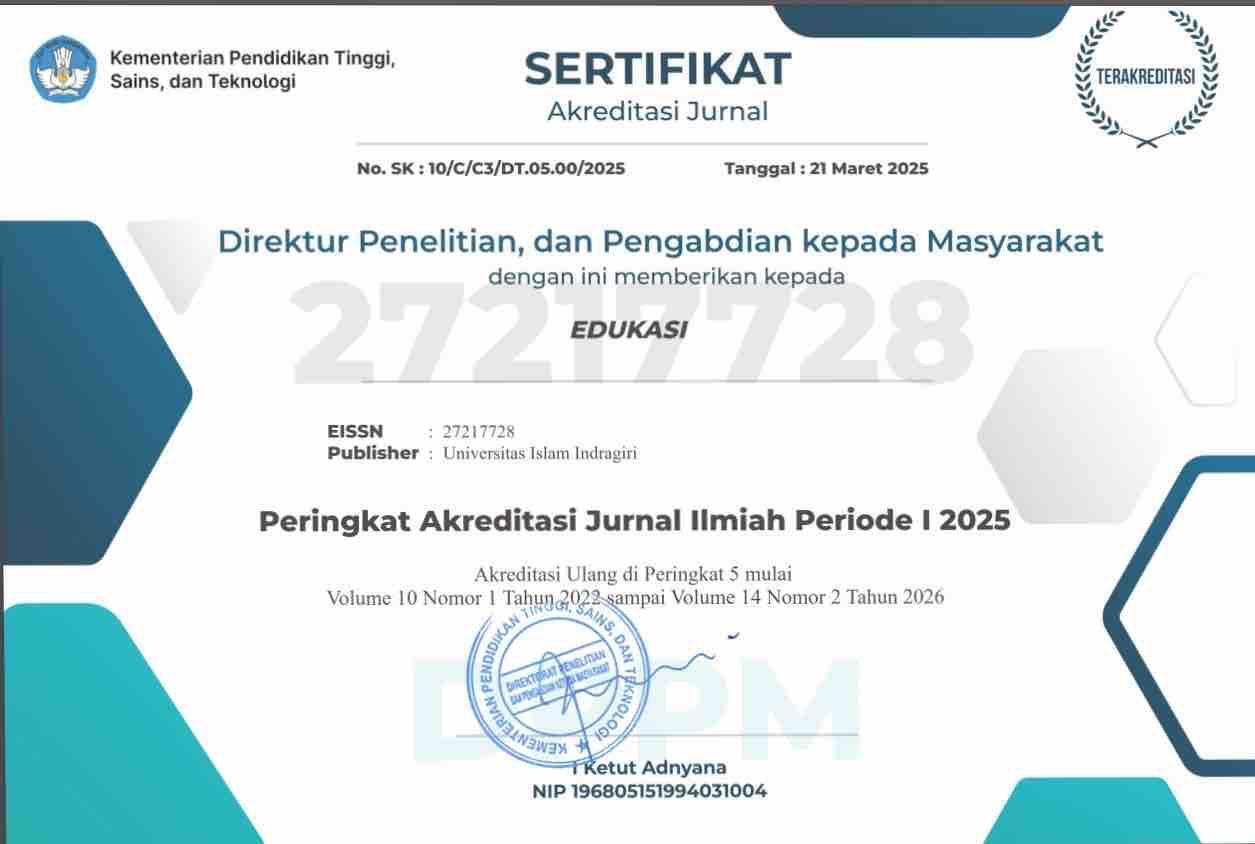The Students’ Perception Of The Use Of Online English Dictionary At Grade XI Sman 1 Tembilahan Hulu
DOI:
https://doi.org/10.61672/judek.v11i1.2602Keywords:
Online English DictionaryAbstract
This research is motivated by the lack of students now to use dictionary which the result from preliminary observations are most students use online dictionary than book dictionary when studying the English language. The researcher become curious about the students experiences in using online dictionary. Thus, this study aims to investigate about students perception on the use of online dictionary by using quantitative method. The sample in this study were 35 students of class XI MIPA 5 SMAN 1 Tembilahan Hulu. Sampling was carried out using cluster sampling technique. In collecting data, researchers used a questionnaire as a research tool. This questionnaire is used to find out how students perception of the Use of Online English Dictionary. The questionnaire used in the study was presented in 5 (five) alternatives, commonly known as the Likert Scale. The results showed that students' perception of the Use of Online English Dictionary fall into the high category. It proved that 35 students got that category as the highest average score was in indicator selection with a score 140, followed by indicator organization with a score 139. And then the average value of indicator interpretation with a score 148. So, the researcher can conclude that the use of online dictionary can increase students’ interest in learning English. Because online dictionary is faster and easier than book dictionary.
Downloads
References
Creswell, (2012). Educational research: planning, conducting, evaluating,
quantitative, and qualitative research (fourth edition). United State of America: Pearson Education Inc.
Irwanto, (2012), audi students‟ perspective on social media usage to promote EFL learning. International Journal of Linguistics, Literature and Translation
Jamshed, S. (2014). Qualitative research method-interviewing and observation.
Journal of basic and clinical pharmacy, 87-88
Koentjaningrat, (2013: 42), Students’ Perception on the use of online English dictionary in Speaking Skill Development at SMPK Penabur Kota Wisata, Bogor. BPK Penabur Jakarta
Omar and Mansor, (2005). ESL learners‟ interaction in an online discussion via Facebook. Asian Social Science, 81
Qiong, (2017). , et al. "Modeling and an analysis of safety perception of online
car-hailing passengers based on a structural equation model." (2017)
Rosmawati, (2020), Research methods in education (6th ed.). Routledge.
Sevik, (2014), M. (2014). University prep-school EFL learners’ dictionary ownership and preferences. Procedia, 158, 226-232.
Sugiyono, (2014: 124). Search Technique questionnaire. Bandung : Remaja
Rosdakarya
Surani, (2019: 23). Users of the world, unite! The challenges and opportunities of social media.
Wiegand, (2010: 2009). How to improve your memory. New York: By Barnes & Noble, INC
Wurianto, (2019), Pros and cons of social media in the classroom. Campus Technology. Campus Technology. 11
Yongwei, (2012) Yongwei, G. (2012). Online English Dictionaries: friend of foe. Proceedings of Euralex
Zheng & Wang, Zheng, H., & Wang, X. (2016). The Use of Electronic Dictionary in EFL Classroom. Studies in English Language Teaching.








